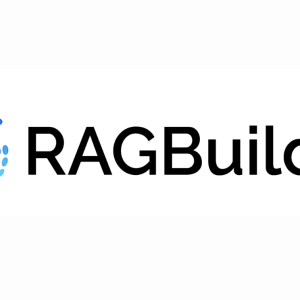

RAG systems, which integrate retrieval mechanisms with generative models, have significant potential applications in tasks such as question-answering, summarization, and creative writing. By enhancing the quality and informativeness of generated text, RAG can improve user experience, drive innovation, and create new opportunities in industries such as customer service, education, and content creation. However, developing these systems involves selecting appropriate components, fine-tuning hyperparameters, and ensuring the generated content meets desired quality standards. The problem is further compounded by the lack of streamlined tools for experimenting with different configurations and optimizing them effectively, which can hinder the development of high-quality RAG setups.
Current methods for building RAG systems often require manual selection of models, retrieval strategies, and fusion techniques, making the process time-consuming and prone to suboptimal outcomes. The need for a toolkit that automates and optimizes the RAG development process is evident, especially as the field grows in complexity.
To address the complexities and challenges involved in creating and optimizing Retrieval-Augmented Generation (RAG) systems, the researchers propose RagBuilder. It is a comprehensive toolkit designed to simplify and enhance the creation of RAG systems. RagBuilder offers a modular framework that allows users to experiment with different components, such as language models and retrieval strategies, and leverages Bayesian optimization to explore hyperparameter spaces efficiently. Additionally, RagBuilder includes pre-trained models and templates that have demonstrated strong performance across various datasets, thereby accelerating the development process.
RagBuilder’s methodology involves several key steps: data preparation, component selection, hyperparameter optimization, and performance evaluation. Users provide their datasets, which are then used to experiment with various pre-trained language models, retrieval strategies, and fusion techniques available within RagBuilder. The toolkit’s use of Bayesian optimization is particularly noteworthy, as it systematically searches for the best combinations of hyperparameters, iteratively refining the search space based on evaluation results. This optimization process is crucial for improving the quality of generated text. RagBuilder also offers flexible performance evaluation options, including custom metrics, pre-defined metrics like BLEU and ROUGE, and even human evaluation when subjective assessment is necessary. This comprehensive approach ensures that the final RAG setup is well-tuned and ready for production use.
In conclusion, RagBuilder effectively addresses the challenges associated with developing and optimizing RAG systems by providing a user-friendly, modular toolkit that automates much of the process. By integrating Bayesian optimization, pre-trained models, and a variety of evaluation metrics, RagBuilder enables researchers and practitioners to build high-quality, production-ready RAG systems tailored to their specific needs. This toolkit represents a significant step forward in making RAG technology more accessible and effective for a wide range of applications.
The post RagBuilder: A Toolkit that Automatically Finds the Best Performing RAG Pipeline for Your Data and Use-Case appeared first on MarkTechPost.